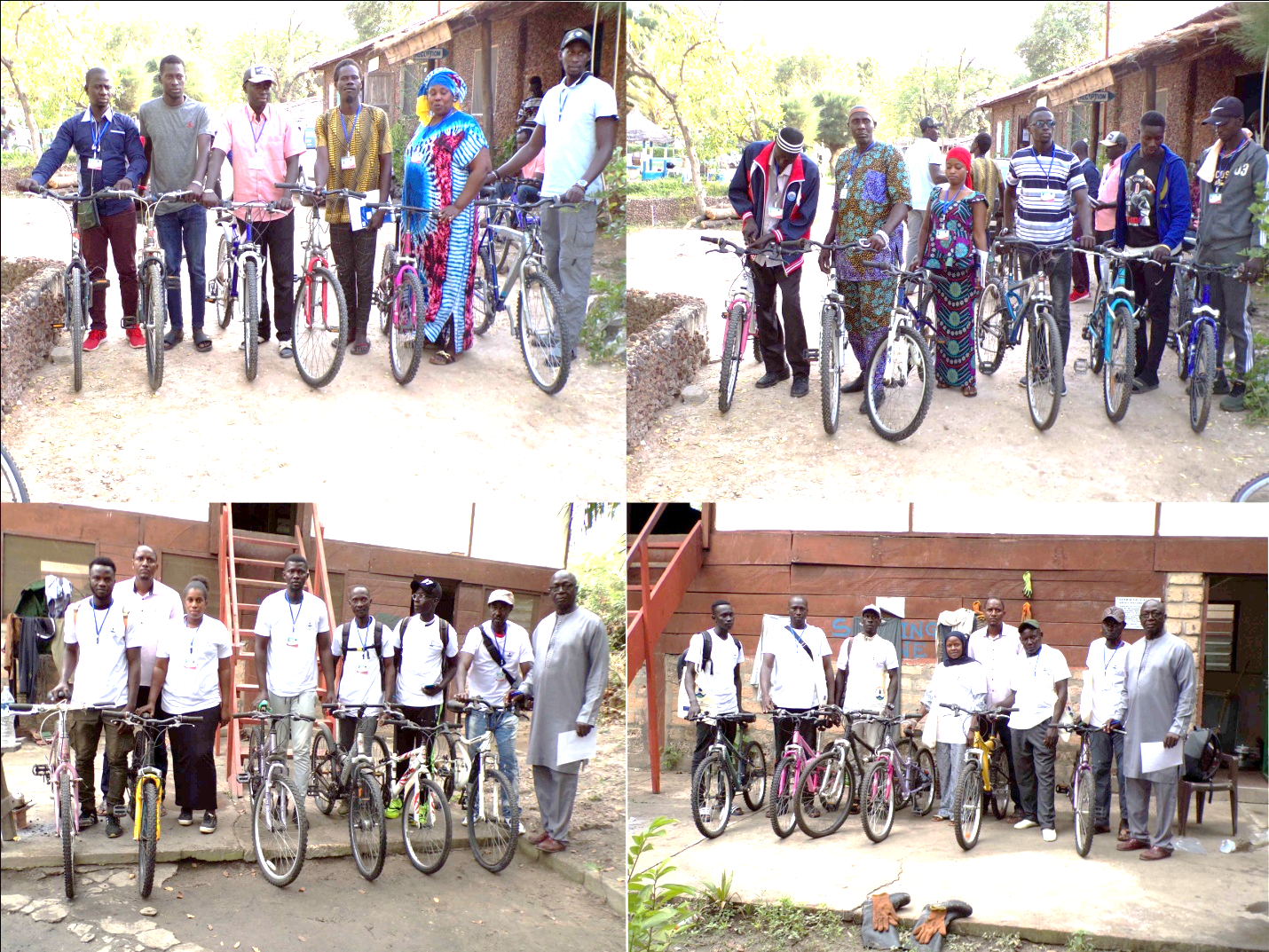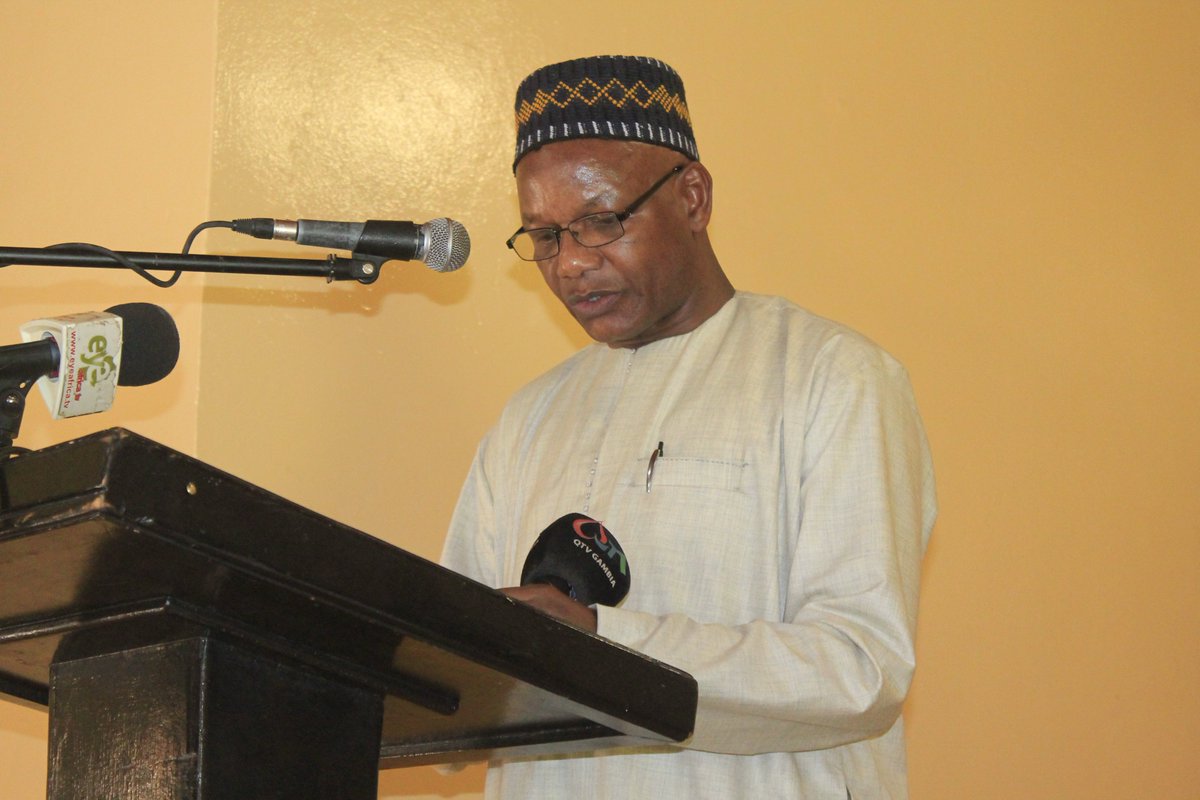The creation of the Gambian Revenue Authority (GRA) in 2004 was an important milestone as it heralded an improvement in tax revenue mobilization. However, urgent reforms are now needed. A quick glance at the current GRA Act reveals many areas that need updating. The government so far has busied itself with minor and mostly inconsequential changes recently rather than actual reforms. In this article, I would like to focus on the problem of our version of corporate income tax or income taxes for small businesses.
The main problem is that the Gambian tax law requires businesses to pay tax on revenue or net income, depending on which is larger, irrespective of whether the company is reporting a profit or a loss. Specifically, the tax liability of a business is whichever of the following two figures is larger: a tax rate of 2.5% on revenue or a tax rate of 32% on net income. The problem is not with the levels of the tax rates, which are within normal bounds, and close to the African average.
Rather, the problem is that this means that a company will have to pay tax even if it is making a loss. It also means that a company that just started operations and is experiencing significant negative cash-flows would still be forced to make tax payment. For example, suppose a local investor starts a technology firm and incurs 3 million dalasi in expenses. And within the first year, they managed to generate a revenue of D250,000. Even though this company would have a negative cashflow and a significant operating loss, the Gambian tax law would still require the company to pay tax, just based on the fact it reported some revenue.
This is a bad tax law and it is also against international best practices. The reason it is bad is because it prioritizes short-term revenue collection over long-term expansion of the tax base. By levying tax on a business experiencing no profit, the likelihood is increased that the business would be taxed to death. It is especially disastrous against businesses that require long gestation period before they mature. Businesses are especially precarious during those critical early phases. This includes businesses in agriculture that grow perennial crops that may take years to mature. It also extends to manufacturing and processing companies where initial construction and set-up costs are so high that it can years before the company experiences any positive cashflow.
Unfortunately, when one brings this issue to GRA officials, the first response one gets is that businesses can apply for investment certificates from the Gambia Investment and Export Promotion Agency (GIEPA) to get tax waivers. The problem with this response is that it ignores the fact that most small indigenous Gambian businesses are not even aware of the tax concessions available at GIEPA. Even if they are aware, most will not meet the eligibility criteria. What’s more, the process involved in getting tax waivers through GIEPA is too cumbersome and complicated for the majority of them. In fact, the fee for one of these investment certificates is 1000 US dollars, in addition to substantial paperwork. For micro or small enterprises, this is simply not an option.
So, in reality, many small Gambian businesses are simply unaware or unable to go through GIEPA to get any tax forbearance. As a result, they are made to pay tax even when they report no positive income. Such a practice has the effect of encouraging businesses to become informal (by failing not to update their registrations) because they cannot shoulder the tax burden. In addition to this problem, additional taxes are sometimes inexplicably levied on businesses expenditures and outrageously labelled as ‘income tax’ even in the absence of any income earnings. An example would be an agricultural company buying a car that would be used for ferrying supplies to the farm. GRA would add an annual tax on this that they would label as income tax even if the business reports no income. Yet another example is the practice of GRA requiring company to make deposits in advance so that tax liabilities can be deducted later, which is detrimental for a business that has no guarantee of making profit the subsequent year. These over-eager applications of nuisance taxes is a form of fiscal repression, which is bad for the country in the long run. I should hasten to add that the fault is not with the GRA staff, who are just applying the country’s existing tax code and regulations. Rather, the fault lies with the tax regime and can only be corrected with proper tax reforms.
In the long term, this situation is bad for economic growth and also domestic revenue mobilization for the country. To appreciate the interaction of the factors responsible for revenue collection, it is important to note that the total amount of tax revenue collected by the government is a function of three variables: (i)the tax rate, (ii)the collection efficiency and (iii)the tax base. The first one is the easiest for the government to manipulate because all that is required is changes to the tax code without implementing any major reform. The second one is based on the capability of the tax collection agency, which is the GRA in the case of The Gambia. This second part is also a function of tax compliance by tax-paying entities. The third item, the tax base, is the biggest determinant of tax revenue collected by the government in the long term. The tax base is the value of economic activity that can be taxed. It is also the one variable that neither the tax authority nor the government at large can change easily or quickly. That is because it is based on the entry and growth of value-generating businesses that depends on the business enabling environment of which tax administration is a major component.
Understanding the confluence of the above three variables is important in instituting the right reforms. In this particular case, lowering the tax rate and avoiding fiscal repression through the levying of nuisance taxes makes economic sense because it allows a larger number of businesses to be created and thrive, as well as maintaining a formal status. This in turn allows the government to tax a larger number of businesses and enable it to collect a higher tax revenue even with a lower tax rate or with fewer tax levies.
The Jammeh government may not have had any reason to make any changes to the tax code for the simple reason that it was seriously revenue-strapped. That government needed money wherever it could get it, irrespective of the long-term consequences. After all, many development partners had stopped financing it in its latter years. This was the reason why that government issued too many treasury bills and drove up the interest rate. And it also encouraged GRA to over-burden businesses with onerous taxes.
But the situation is now different. Cooperation with development partners have now resumed, and there is hopefully more long-term outlook for this new government. It is high time now that a close look is given to the tax code and the necessary reforms are done. This means making tax liability dependent on positive net income. Businesses should not be subject to tax when they are experiencing losses or are just about to start operations.
The failure to make reforms soon would be detrimental for the Gambian economy in the long-term because the current law will continue to lower the tax base. This will occur because it will reduce the survival of a large number of businesses. In the short-term, this sub-optimal status-quo encourages businesses to become informal by failing to register in the first place because making tax payment is simply not financially feasible for them. This leads to a culture of low tax compliance, which will be bad for GRA’s collection efficiency and damaging for the ability of the government to mobilize resources domestically and finance needed public expenditures.
It is also worth pointing out that the implementation of the National Development Plan (NDP) requires the GRA to have a long-term outlook rather than myopic obsession with annual revenue collection targets. In particular, the financing of the NDP does not depend only on the pledges made by our development partners in Brussels. In fact, a significant component of the financing is based on domestic revenue mobilization. The long-term outlook should be cognizant of how to expand the tax base rather than killing the goose that lays the egg.
Dr. Ousman Gajigo
Ousman Gajigo is an economist. He has held positions with the African Development Bank, the UN, the World Bank and Columbia University. He holds a PhD in development economics. He is currently an international consultant and also runs a farm in The Gambia.





